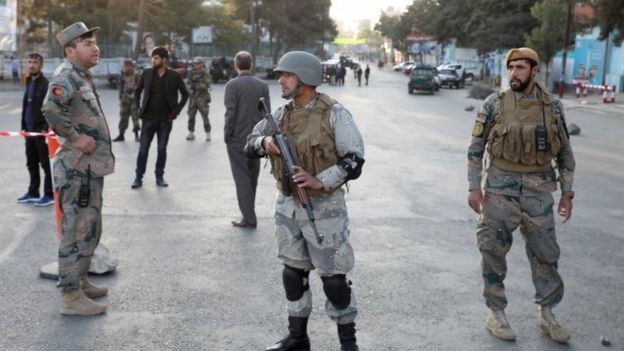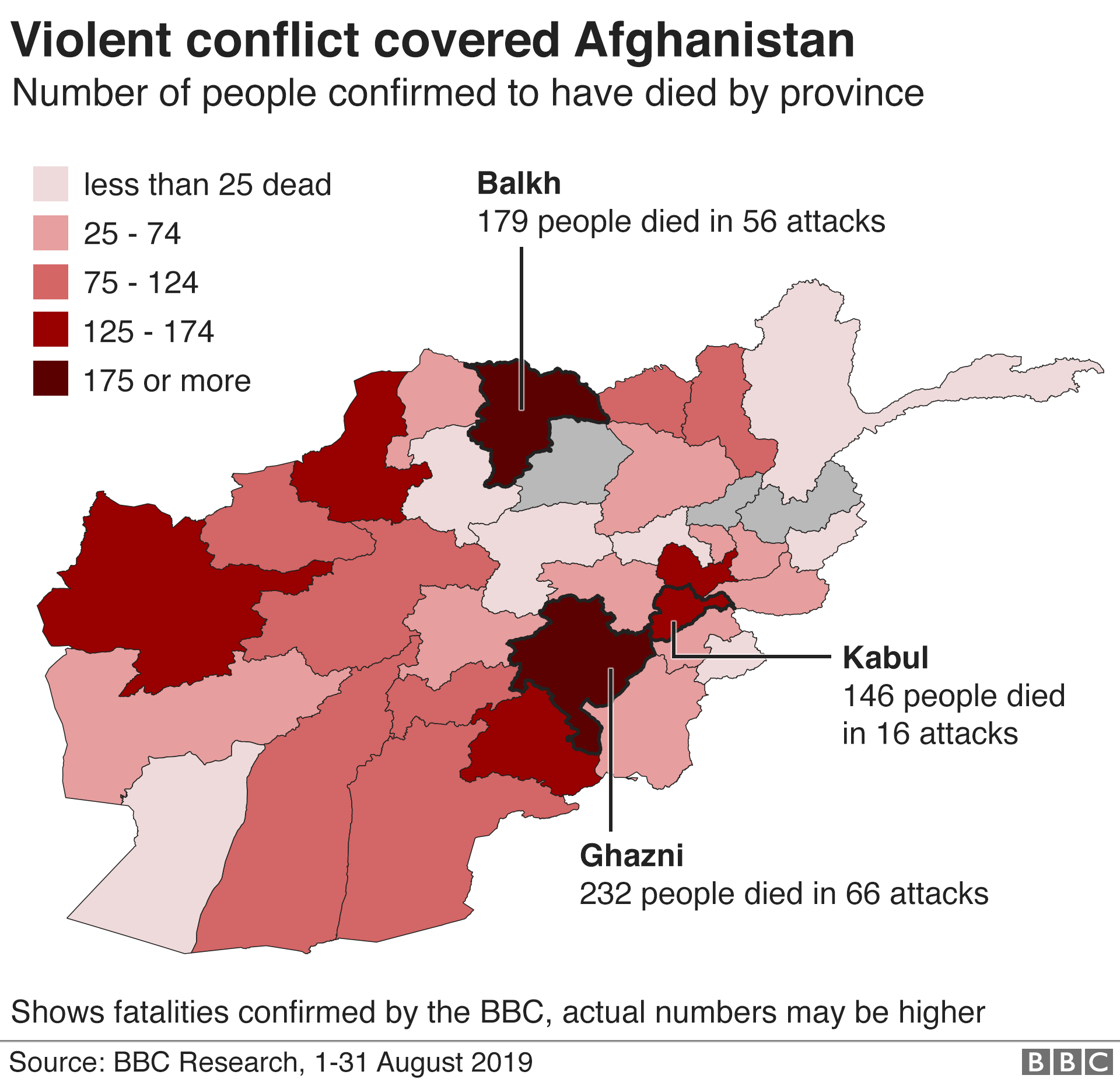Voting is under way in Afghanistan’s presidential election, amid heavy security and threats from insurgents.
Tens of thousands of Afghan forces have been deployed across the country to counter Taliban militants who have vowed to target polling stations.
The twice-delayed vote is taking place after Taliban-US peace talks collapsed earlier this month.
The two main candidates are the incumbent, Ashraf Ghani, and chief executive, Abdullah Abdullah.
Shortly after voting began, there was an explosion near a polling station in the southern city of Kandahar. Reports say a number of people were injured.

They have shared power since 2014.
Independent Election Commission spokesman Zabi Sadaat told AFP: “Voting has begun all over the country, and we are glad the people are already in big lines at polling centres waiting to cast their votes.”
Why does this election matter?
Afghanistan’s next president will lead a country devastated by four decades of war.
The conflict continues to kill thousands of people every year, drawing in forces from around the world.
Nearly two decades since the international community intervened, the US has been trying to negotiate an end to the conflict with the Taliban. The US currently has about 14,000 troops in Afghanistan, and there are thousands more from countries like the UK, Germany and Italy, there as part of a Nato mission to train, advise and assist the country’s security forces.
That should mean whoever is elected president in the fourth election since US-led troops ousted the Taliban in 2001 has a key role to play at a crucial moment in the country’s history.


However, the Taliban currently refuse to negotiate directly with the Afghan government, saying it is illegitimate.
What’s more, the militant group has said it will only begin negotiations with Afghan authorities after a deal with the US is agreed.
So who sits at the head of Afghanistan’s government may not be the US’s primary concern – but it matters to the people caught in the crossfire between the army, the Taliban and other insurgents.



